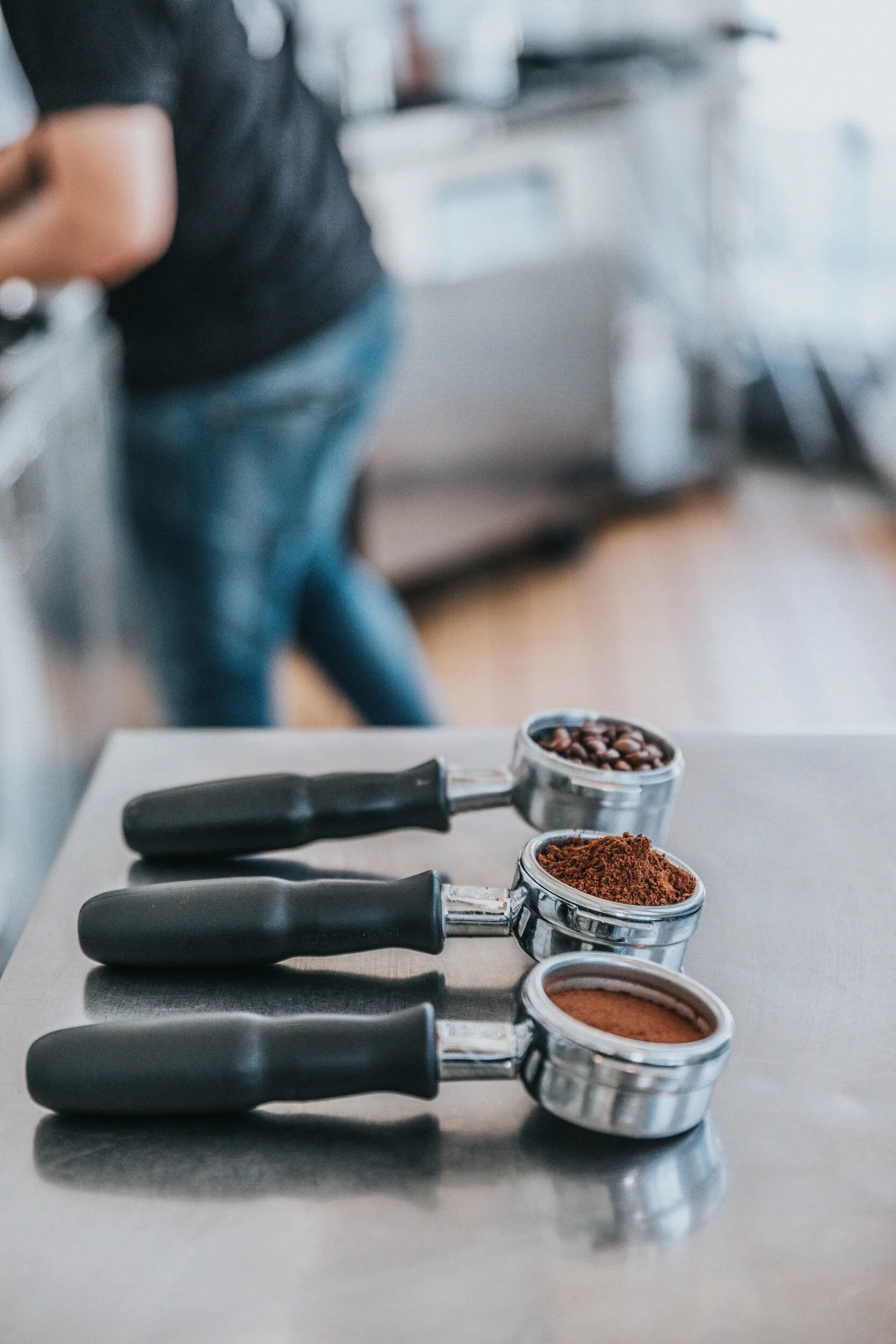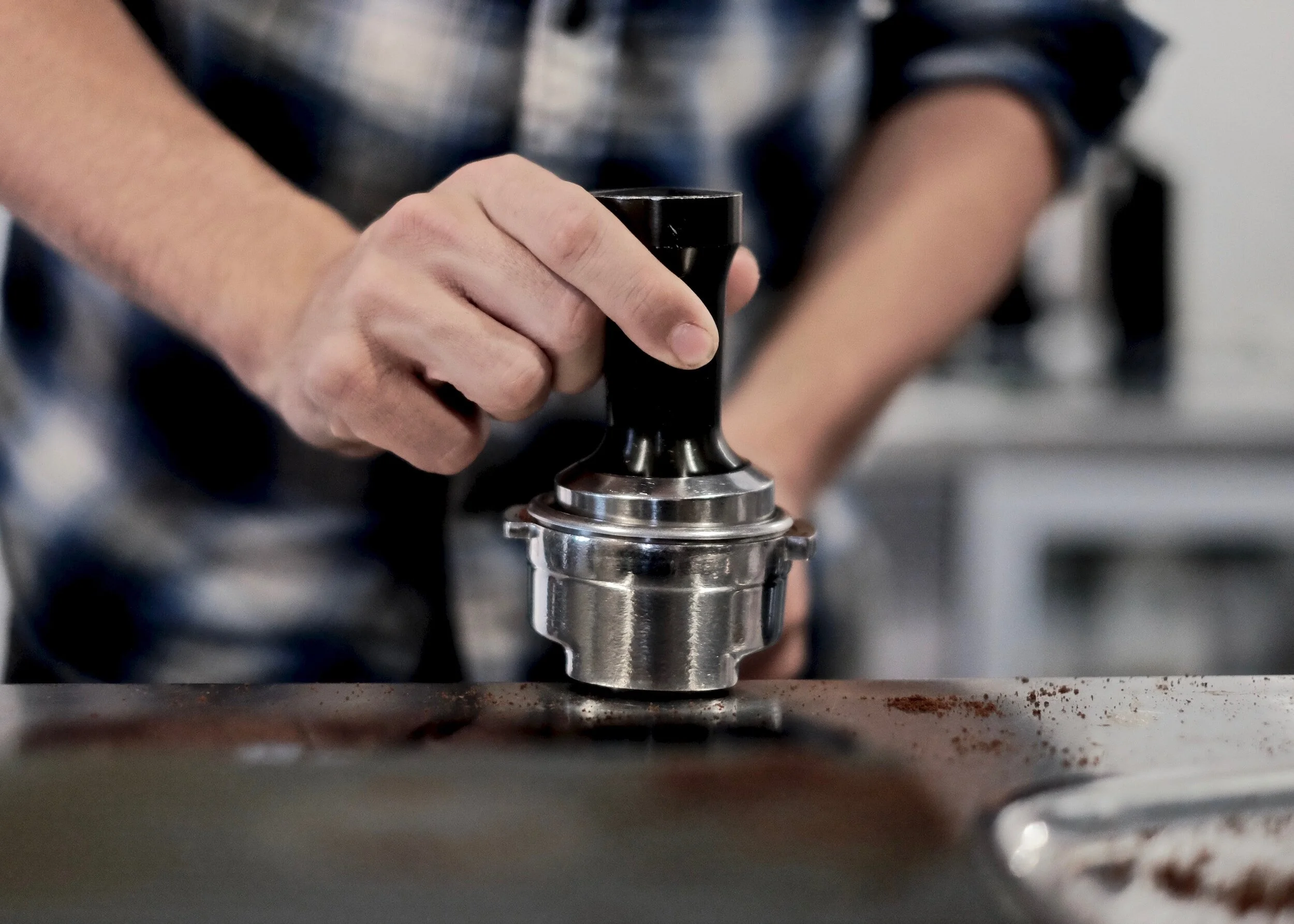Coffee education: A critical step to improving all aspects of your coffee journey.
Education plays a vital role in every barista's journey. Many aim to obtain professional education, while others prefer self-education through videos, coffee blogs and podcasts. However, the key is to remember that education is only worth the time and energy if the information is implemented.
There are multiple ways of improving your knowledge. The coffee industry has grown so that trainers are accessible to everyone. The key, however, is finding a trainer to meet your every coffee need.
Trainers are different. Some have accredited courses, while others focus on practical skills. Some trainers give their students more information than they came for, while others prefer to provide the bare minimum. There is a way to find the perfect trainer. We will help you to ensure that you pick the best-suited courses and trainers anywhere in the world.
The impact of coffee education
Education aims to raise the standard within the coffee industry. In many countries, an accredited SCA or professional training certificate is critical. Coffee shops will shy away from hiring untrained baristas because of the lack of a certificate.
In other countries, training will be done on the job, which leaves many baristas in the dark. These baristas will have no background on where coffee is from, the processes the beans go through, or understanding the science behind extraction. Taking away from the experience the coffee shop can add to their customers.
Coffee shop owners should aim to enhance their baristas through coffee courses. Formal training will enable them to provide an excellent product consistently and add additional value by communicating and sharing the coffee experience with their customers.
Not only will the baristas understand and appreciate the art behind coffee, but they will also aim to educate and teach every person or customer they encounter. Education and coffee courses set the foundation for the entire industry. And through professional training, the industry can raise awareness, the standard and every customer's perspective on coffee.
The various formats of coffee education
There are various formats for coffee education. The different coffee courses will provide a variety of skills and knowledge to assist you in your journey.
SCA courses
The Specialty Coffee Association (SCA) is a household name in every cafe, roastery and training facility. The non-profit organisation aims to set a standard for the coffee industry. They have worldwide trainers, training and educating students in multiple facets and topics within coffee.
The SCA have courses in coffee skills, sustainability in coffee and technician programs. Each of these topics has multiple courses to ensure that coffee professionals can diversify and grow their knowledge in various areas within the coffee industry.
If accredited education is your heart's desire, these courses will perfectly fit you. The content within the course is set by the SCA, which leaves the trainers with the exact information they have to share.
Unaccredited Courses
Accredited courses are fantastic. These courses provide multiple options for individuals who want to work in the industry. However, unaccredited courses are the best fit for those discovering the coffee industry for the first time or only wanting to improve their home brewing game.
These short courses will provide the necessary skills and knowledge to ensure every student learns the skills and information to improve or learn precisely what is needed. Baristas, roasters or trainers usually teach short coffee courses within a coffee shop.
The trainer will determine the content of the coffee course, which will vary between educators. Some examples of these courses are improving your V60 recipe or finding your feet behind the espresso machines.
Online courses
Udemy, skillshare, and many other platforms have recently added coffee courses to their library. The online courses are short and straight to the point. The aim is to enhance your skills and knowledge within a few videos, never exceeding five hours.
Online coffee courses allow students to run the course at their own pace. They determine their study periods, and the course can be completed within a few days. A problem that can occur with these courses is the need for more interactions or the ability to ask questions.
Many online trainers will provide the student with an email address, number or platform where they can ask their questions. Still, many students will shy away from asking the question due to the lack of personal interaction.
Courses on plunger recipes or how to make a perfect espresso can be included in these online coffee course options.
Blogs and Videos
Coffee Blog posts and videos are free content that any coffee lover can find online. Many coffee professionals and barista trainers use YouTube, coffee blog articles or short videos to provide valuable coffee information.
The key, however, is to find the best information shared by credible sources within the industry. Some articles and videos state or educate people with the wrong information.
Students must conduct their research to find the history and past experiences of the trainers they seek to use. This will allow the student to identify the credibility and authenticity of the trainer.
The aim of these coffee blogs and videos should be to take all the information and put it into practice. Not only will the student learn through failure and processes, but they will be able to see if the information is accurate.
What coffee course is best suited for you?
The main question any coffee lover should ask themself is what they want to achieve through the course. Improving your home brewing V60 recipe and coffee taste, learning to function as an accredited barista, or growing your coffee business are all excellent outcomes linked to coffee education.
Accredited courses are directed at students who want to move into the coffee industry. Working as a barista, learning to roast or improving your brewing skills through certified courses will enhance any student's opportunity to find an occupation in the industry.
Unaccredited courses aim to educate and uplift coffee lovers through skills and knowledge. These courses will enable baristas interested in improving their skill without the documentation. Coffee lovers can use these courses to enhance their knowledge or find a new passion for coffee.
Online videos have their own little space in education within the coffee industry. These online courses focus on passionate home baristas, coffee enthusiasts and coffee lovers who are starting their journey within the coffee industry. They are short courses that focus on skill development and knowledge.
Coffee blog posts and online videos provide great insight into what coffee could be to coffee lovers. Some of these videos will enable coffee enthusiasts to grow their understanding and improve their skills.
One problem that videos and coffee blogs present is the need for more personal interaction or in-depth training. Videos and blogs are made to educate through quick and accessible content. Many trainers struggle to fit all their information into a video, thus leaving them with limited space to share what they feel is essential.
Five questions to ask every trainer to ensure that they are best suited for you
Here are five great questions every student should ask their potential trainer. These questions will enable students to identify whether the trainer is suited for them.
Are you an accredited trainer?
Students should ask their trainer if they are certified. The frustration of paying and finishing a course only to be told there is no certification is a regular occurrence. Students can use the SCA portal to find the trainer. If the name appears on the portal, they are part of the SCA team.
Are there any additional costs to the course?
Barista trainers mainly focus on education and sharing information. Some of these trainers can manipulate or add additional costs throughout the training. SCA requires an enrolment fee and an activation and certification fee. Make sure that the trainer includes these fees in his price.
How big is the group size?
Smaller group sizes will allow students more time on the espresso machine. This will enable every student to learn and reinforce the knowledge and skills they just received. Bigger groups, on the other hand, can offer a wide range of coffee questions and industry knowledge. As every student might bring different questions, the students can learn from one another.
Are there various payment options?
SCA skills programs are expensive for many South Africans. And the course fees might be too much to pay at once. Some trainers offer multiple payment methods and will assist every student in the best way possible to ensure they receive the skills at a reasonable price.
What other options, programs or courses can be completed next?
Coffee is an intricate industry. There are multiple facets, and students can diversify their skills by learning every aspect of the industry. Pulling espressos is just one small aspect thereof. Learning the roasting process, growing your pallet or identifying sustainable options in the industry are just a few other ways students can broaden their portfolio.
Conclusion
Coffee education is one of the fastest methods of growing knowledge and gaining the necessary skills. These coffee courses will enable new baristas to understand the depth of the industry and find creative ways to have their name stamped within the industry.
Take the leap and enjoy local or international coffee courses, which will assist with education and provide clear guidelines and mistakes that young baristas or cafe owners can avoid.





